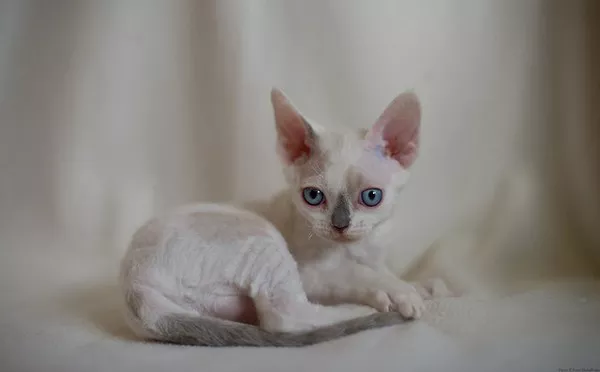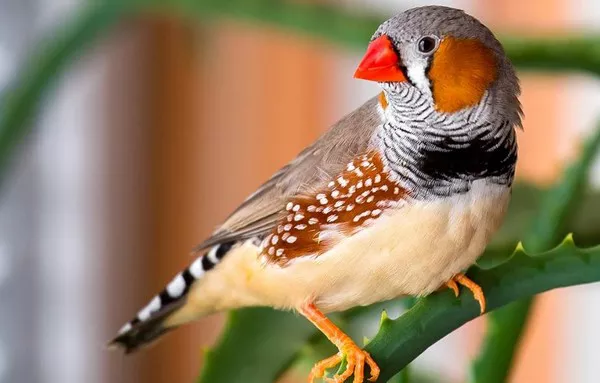Tortoiseshell cats, often affectionately called “torties,” are known for their striking, multicolored coats and feisty personalities. These cats come in a variety of temperaments, from shy to bold, and are often described as independent yet loving. Despite these differences, a common question arises among pet owners: Do tortie cats experience separation anxiety? To answer this, we must dive deep into their breed characteristics, behaviors, and the psychological factors that could contribute to their emotional needs.
Understanding Tortoiseshell Cats
Tortoiseshell cats are not a breed in themselves but rather a color pattern that occurs in various cat breeds. The name “tortoiseshell” refers to the distinctive blend of black, orange, and cream fur, resembling the shell of a tortoise. Sometimes the pattern can also include shades of brown, gold, and gray. The unique coat color has made tortie cats particularly popular, with their vibrant and eye-catching appearance.
While tortoiseshell cats can be found in a variety of breeds, including domestic shorthairs, longhairs, and purebred cats like the British Shorthair and the Maine Coon, they are often associated with a strong, independent personality. Torties are frequently described as headstrong, and they can be a bit more temperamental than other cats. Some may be aloof, while others can be quite affectionate. It’s important to note that each cat is an individual, and behavior can vary widely even within the tortie pattern.
What Is Separation Anxiety in Cats?
Separation anxiety is a condition in which a cat becomes overly distressed when separated from its primary caregiver or owner. Unlike the normal distress cats may show when left alone, separation anxiety leads to excessive stress, which can manifest in various physical and behavioral signs.
Some common signs of separation anxiety in cats include:
Excessive Vocalization: Crying or meowing more than usual when the owner is about to leave or after leaving.
Destructive Behavior: Scratching furniture, knocking things over, or chewing on inappropriate objects.
Inappropriate Urination or Defecation: Cats may urinate or defecate outside the litter box, often as a response to stress.
Excessive Grooming: Some cats might groom themselves excessively as a way to cope with anxiety.
Pacing or Restlessness: Constant walking around, especially near windows or doors where the owner left.
Separation anxiety in cats can have multiple causes, including changes in routine, moving to a new home, a lack of stimulation, or even a traumatic experience. This condition can also be influenced by genetics, as some breeds or individual cats may be more prone to anxiety due to their temperament or early life experiences.
Does the Tortie Personality Influence Separation Anxiety?
Tortoiseshell cats are often characterized by their strong, independent personalities. They may be more prone to experiencing frustration when their routine is disrupted or when they don’t get the attention they expect. While this does not necessarily mean all tortie cats are predisposed to separation anxiety, their temperament can influence how they react when their owner leaves.
Torties are sometimes described as “queenly” and “opinionated.” These traits could make them more likely to demand attention or express displeasure when their needs are not met. As such, a tortie cat may experience anxiety when left alone, especially if it’s used to having consistent attention from its owner.
It’s also worth noting that many tortie cats are highly intelligent, and an intelligent cat might become bored or frustrated when left alone for long periods. Cats that are more curious and mentally stimulated may be more sensitive to separation, as they may feel a heightened sense of loss when their owner departs.
Independent Yet Social
One of the most fascinating aspects of tortie cats is their balance between independence and social bonding. They often enjoy spending time with their human companions, yet they typically do not have the same clingy or needy tendencies as some other cats. This mix of behaviors can make it harder to predict whether a tortie will develop separation anxiety.
Some tortie cats may show signs of separation anxiety, while others might appear more indifferent when left alone. In fact, some torties might even relish having some time away from their owner and enjoy their solitary moments. However, it’s important to understand that while they may not be as overtly demanding as some other cats, torties still need a healthy balance of affection, stimulation, and independence to thrive.
Are Certain Tortie Cats More Likely to Experience Separation Anxiety?
Since tortoiseshell cats are not a distinct breed but rather a color pattern, their tendencies can vary depending on their individual personalities and genetics. However, there are certain factors that may increase the likelihood of a tortie experiencing separation anxiety:
Early Life Experiences: Kittens who have not been properly socialized or have had traumatic experiences early in life are more likely to develop anxiety disorders. Torties who have been separated from their mothers too early or have not had adequate socialization may have a higher likelihood of developing separation anxiety.
Breed Characteristics: Some breeds that commonly produce tortoiseshell cats, such as the Maine Coon and the British Shorthair, may have certain breed traits that influence their likelihood of developing anxiety. For example, the Maine Coon is generally known to be affectionate and people-oriented, which could make a tortie Maine Coon more susceptible to separation anxiety if left alone for extended periods.
Previous Trauma or Change in Environment: Cats, including torties, are creatures of habit. If a cat experiences a traumatic event, such as a move, a loss of a companion, or a change in routine, it could trigger anxiety. Tortie cats, like other cats, may struggle with adjusting to such changes.
Health Issues: Health problems, including pain, discomfort, or illness, can exacerbate anxiety. A tortie experiencing physical discomfort may become more distressed when left alone, particularly if they feel vulnerable or unable to seek comfort.
Age and Stage of Life: Younger torties may be more energetic and inquisitive, making them more likely to become bored and anxious when left alone. Older torties, on the other hand, may become more attached to their owners and less tolerant of being alone, making them more prone to separation anxiety.
How to Tell If Your Tortie Cat Has Separation Anxiety
Recognizing separation anxiety in tortie cats requires careful observation of their behavior. While all cats may show some signs of distress when their owners leave, separation anxiety is usually more severe and persistent. If your tortie shows any of the following behaviors, it may be experiencing separation anxiety:
- Persistent meowing or crying when you leave or just before you leave.
- Destructive behavior such as scratching furniture, chewing on cords, or knocking over objects.
- Changes in litter box habits, such as urinating or defecating outside the litter box.
- Excessive grooming or self-mutilation, which may indicate anxiety-related stress.
- Overly clingy behavior or following you everywhere, even when you are home.
If you notice that your tortie exhibits any of these behaviors consistently, it’s important to address the issue and try to manage their anxiety in healthy ways.
How to Help a Tortie Cat with Separation Anxiety
While separation anxiety can be distressing for both the cat and the owner, there are several strategies that can help alleviate the symptoms. Here are some tips for managing separation anxiety in tortie cats:
Create a Consistent Routine: Cats thrive on routine, and having a predictable schedule can help reduce anxiety. Try to feed your tortie at the same time every day, and provide regular playtime and attention. When your cat knows what to expect, it can help lessen the stress of your absence.
Provide Enrichment and Stimulation: Boredom can contribute to anxiety in cats. Make sure your tortie has access to plenty of toys, scratching posts, and activities that will keep her engaged when you’re not around. Puzzle feeders, cat trees, and interactive toys can help keep your cat mentally stimulated.
Use a Safe Space: Create a space where your tortie feels safe and comfortable when you’re not home. This could include a cozy bed, access to a window, and other comforting items like a piece of clothing that smells like you. Giving your tortie a space where she can retreat may help reduce anxiety.
Gradual Desensitization: If your tortie has severe separation anxiety, consider working on desensitizing her to your departures. Start by leaving for short periods and gradually increasing the time you’re away. Reward calm behavior when you return to reinforce positive associations with your absence.
Calming Products: There are several products on the market designed to help reduce anxiety in cats. Pheromone diffusers, calming collars, and anxiety-reducing sprays can help create a more relaxing environment for your tortie. Consult your veterinarian before using any of these products to ensure they are suitable for your cat.
Veterinary Consultation: If your tortie’s separation anxiety is severe and none of the behavioral strategies seem to help, it may be time to consult a veterinarian. In some cases, medication may be necessary to manage anxiety. Your veterinarian can recommend the best course of treatment for your cat’s needs.
Conclusion
Tortoiseshell cats, with their colorful coats and dynamic personalities, can be prone to experiencing separation anxiety, though this is not the case for every tortie. While torties are often independent, their intelligent and sometimes sensitive nature can make them more susceptible to feelings of distress when separated from their human companions. Factors such as early life experiences, breed traits, and changes in their environment can all contribute to separation anxiety in tortie cats.
If your tortie is showing signs of separation anxiety, it’s important to observe her behavior and take steps to alleviate her stress. By creating a consistent routine, providing mental stimulation, and offering comfort, you can help your tortie feel more secure when you’re not around. If the anxiety persists, a consultation with a veterinarian can provide additional guidance on managing the condition. With the right care and attention, your tortie can live a happy and emotionally balanced life, whether you’re home or not.
Related Topics:






















